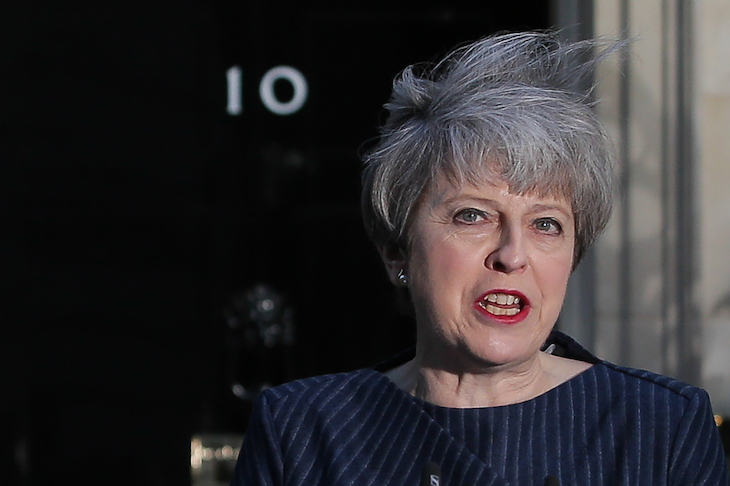‘But you promised!’ Anyone who spends much time with children (whether in an Andrea Leadsom-esque capacity as a mother or otherwise) will recognise that phrase. They’re the words of someone disappointed that the grown ups, who are supposed to be sensible, haven’t followed through.
Today Theresa May broke her own promise about there being no early general election. Will helpfully reminds you of five of those promises, repeated by both the Prime Minister and her henchmen, in this post. She had been so adamant that even those who thought they knew her best after years of working together in Opposition and government had taken her at her word and were insisting until recently that May believed in keeping her promises and that there would be no snap general election.
Does this matter? Well, politicians are always held in low esteem by the public – and have been for a very long time. Often this makes them frightened of their own shadows to the extent that they do not want to make any sort of decision at all, whether or not it breaks a promise. That’s why you hear the very tedious phrase ‘taking the politics out of’, which sounds so decent but is actually politicalese for ‘delaying the decision and shifting the blame onto some poor academic who spent five years wandering around the in long grass conducting a review on an issue we found too difficult to think about ourselves, like aviation’. But like asthma and eczema, the allergy to taking difficult decisions is often also accompanied by an allergy to keeping promises that you’ve pontificated about at length.
It wasn’t just May: one of David Cameron’s most honourable traits appeared to be his commitment to public service which, he claimed before he scarpered following the EU referendum, extended to staying in Parliament as a backbencher after stepping down as Prime Minister. Yet after pontificating about the importance of wisdom from former Prime Ministers, Cameron then seemed to discover that the life of a backbencher was in fact rather tedious – and he realised that even more quickly than most backbenchers. Coming back to plain old Parliament after life in Downing Street was harder than the man who memorably remarked to a friend who’d asked whether he was nervous about becoming Prime Minister ‘how hard can it be?’ had originally thought.
Theresa May’s statement today seemed to make the same admission: things had turned out to be harder than she’d thought and so she needed to break her promise. Oddly one of her complaints was that Westminster wasn’t ‘coming together’ after the referendum, as though it would be better if everyone agreed on everything she suggested, because consensus is such a good way of refining legislation so that it leaves Westminster in good shape.
So both Cameron and May aren’t so much believers in the saying that when the facts change, so do I, as they are believers in changing their mind when they find out how hard things are going to be. This distinction may be lost on voters: they’re still politicians who broke promises who are adding yet more material to the great dune of politicians who broke promises over time.
This presents a problem for those of us who like to defend Westminster as a place that can change lives and politicians as decent people who are elected to make decisions on matters that we don’t have the time or expertise to think about ourselves.
Actually, politicians are decent people, and all people can end up breaking promises. But the problem is that the voters have the same childlike sense of justice that doesn’t easily forget those broken promises (remember what happened to the Lib Dems in 2015 after their broken tuition fee pledge?). Anyone who has worked with children who have been neglected in their early years knows that keeping promises is even more important, as each broken promise hurts terribly and reminds the child of the pain they felt when they were younger. Voters as a whole aren’t vulnerable in the same way, but they consistently show the same frustration with politicians when asked for their attitudes towards them in polls. And whatever they may say about their commitment to public service, but Theresa May and David Cameron have in recent years made it even harder for politicians as a group to gain the public’s trust.








Comments